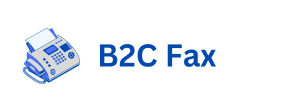In the ever-evolving landscape of marketing, precise targeting is essential for engaging the right audience and driving conversions. Special databases, customized for specific marketing needs, offer a strategic advantage in this endeavor. By organizing and leveraging data effectively, businesses can enhance their targeting strategies and achieve greater results. This article explores how special databases unlock better targeting opportunities and help businesses excel in their marketing efforts.
1. Understanding Special Databases
1.1 What Are Special Databases?
Special databases are tailored repositories of information that focus on specific criteria relevant to a business’s marketing goals. Unlike generic databases, chinese australia phone number lead these are built with the purpose of meeting particular marketing requirements, such as targeting a niche audience or analyzing customer behavior.
These databases can include:
- Customer Profiles: Name, age, location, and contact details.
- Behavioral Data: Website visits, email interactions, and purchase history.
- Demographics and Psychographics: Insights into customer preferences and motivations.
1.2 Why Special Databases Are Essential
Generic databases often contain redundant or irrelevant information that hinders targeted campaigns. Special databases streamline data collection and organization, ensuring that marketers have precise, actionable insights.
2. How Special Databases Enhance Targeting
2.1 Better Segmentation
Special databases allow businesses to segment their audience more effectively. By categorizing customers based on shared traits, marketers can craft tailored messages for each group. Common segmentation criteria include:
- Location-Based Segmentation: Targeting audiences in specific cities or regions.
- Behavior-Based Segmentation: Engaging users based on actions like clicking a link or making a purchase.
- Lifecycle Stage Segmentation: Customizing messages for leads, loyal customers, or inactive users.
This precise segmentation ensures that campaigns resonate with their intended audience.
2.2 Improved Personalization
Today’s consumers expect personalized experiences. Special databases provide the data needed to deliver relevant content, such as:
- Product recommendations tailored to purchase history.
- Exclusive offers aligned with customer preferences.
- Custom messages based on customer demographics or past interactions.
Personalization fosters deeper connections with customers, how special databases can enhance your marketing campaigns’ efficiency increasing the likelihood of engagement and conversions.
2.3 Predictive Targeting
Special databases often include predictive analytics, enabling businesses to anticipate customer needs. Better Targeting By analyzing patterns and trends, marketers can forecast behavior, helping them:
- Identify potential high-value customers.
- Launch proactive campaigns before competitors.
- Reduce churn by addressing potential drop-offs early.
3. Building and Managing a Special Database
3.1 Steps to Build a Special Database
Creating a special database tailored to your marketing objectives involves:
- Identifying Your Goals: Determine what kind of data is needed to achieve your marketing targets.
- Collecting Quality Data: Use reliable sources like customer surveys, website analytics, and CRM systems.
- Organizing Data Effectively: Structure the database with clear categories and filters to ensure usability.
3.2 Maintaining Data Accuracy
The effectiveness of a special database depends on its accuracy. Better Targeting Regular updates are crucial to remove outdated or irrelevant information. Strategies include:
- Data Cleaning: Regularly review and remove duplicate or incorrect entries.
- Verification: Use tools to validate contact details and other critical information.
- Periodic Audits: Assess the database to ensure alignment with marketing goals.
4. The Benefits of Special Databases
Special databases are not just tools for better targeting; they also contribute to overall marketing efficiency and success.
4.1 Increased Campaign
By targeting specific audience segments with relevant messages, aol email list businesses can maximize their return on investment. Wasted efforts on uninterested or irrelevant audiences are minimized.
4.2 Enhanced Customer Engagement
When customers receive content that aligns with their interests, they are more likely to engage, leading to stronger relationships and brand loyalty.
4.3 Time and Resource Efficiency
Marketers save time and resources by focusing efforts on well-defined audience segments. Automation tools also perform better when fed with clean, organized data.
4.4 Competitive Edge
Businesses leveraging special databases can anticipate market trends, respond faster to customer needs, and outpace competitors with targeted campaigns.


